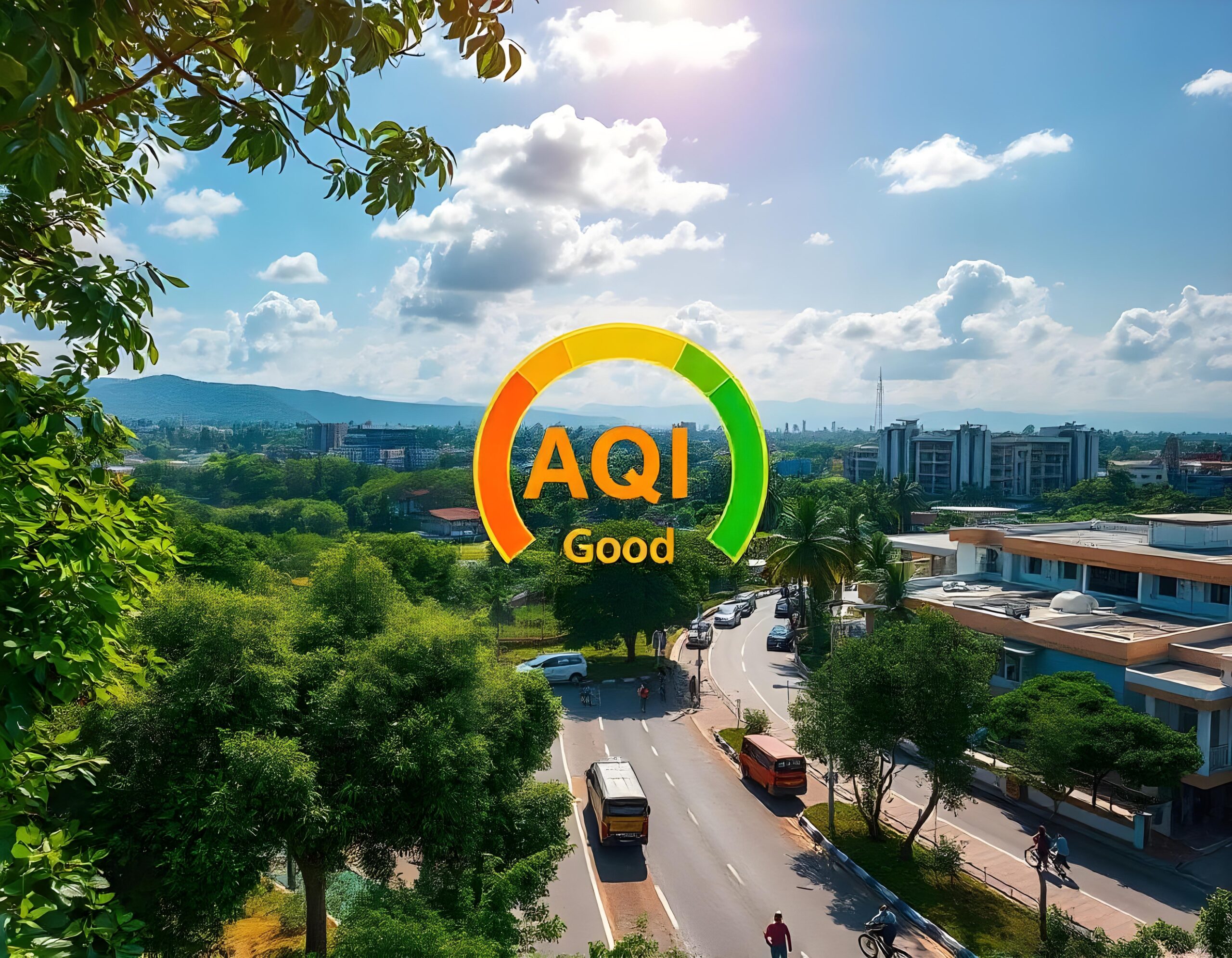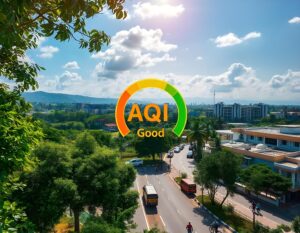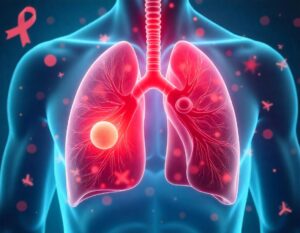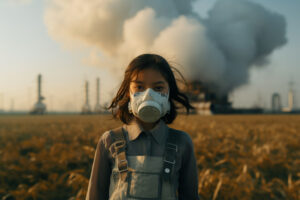Table of Contents
Air pollution is a pressing global challenge, particularly in rapidly urbanizing nations like India. With cities growing at an unprecedented pace, maintaining clean air has become an uphill task. Amid this scenario, Thrissur, Kerala’s cultural capital, has emerged as a beacon of hope. Boasting an Air Quality Index (AQI) ranking in the “Good” category, Thrissur’s accomplishment is a significant milestone. This blog delves into how the city achieved this feat, the health implications of poor air quality, and the actionable steps to sustain and improve its air quality further.
Understanding Thrissur’s AQI Achievement
The Air Quality Index (AQI) is a measure of air cleanliness, ranging from “Good” to “Hazardous.” Thrissur’s AQI of 43 places it firmly in the “Good” category, a commendable achievement when compared to other Indian cities battling severe air pollution. While metropolitan areas like Delhi and Mumbai often record hazardous levels, Thrissur has emerged as a clean-air haven.
What Does AQI Measure?
The AQI evaluates air pollutants like:
- Particulate Matter (PM10 and PM2.5)
- Nitrogen Dioxide (NO2)
- Sulfur Dioxide (SO2)
- Carbon Monoxide (CO)
- Ozone (O3)
Thrissur’s clean air signifies lower concentrations of these harmful pollutants, making it a model city for sustainable urban living.
Key Factors Behind Thrissur’s Clean Air
Thrissur’s remarkable air quality is no accident. Multiple factors have contributed to this success:
1. Natural Geography and Green Cover
Thrissur benefits from Kerala’s lush greenery and moderate climate. Its natural surroundings, including forest reserves and widespread vegetation, act as a natural air purifier, absorbing pollutants and releasing oxygen.
2. Lower Industrial Emissions
Unlike major cities, Thrissur has fewer polluting industries. The absence of heavy industrial zones keeps harmful emissions like sulfur dioxide and particulate matter at bay.
3. Community and Municipal Initiatives
Thrissur’s local government and community play a proactive role in pollution management. Initiatives like waste segregation, effective traffic control, and pollution awareness campaigns contribute to maintaining clean air.
Health Impacts of Poor Air Quality
Air pollution is linked to severe health risks, including:
- Respiratory Issues: Conditions like asthma, bronchitis, and COPD are common in polluted environments.
- Cardiovascular Diseases: Prolonged exposure to particulate matter can lead to heart attacks and strokes.
- Developmental Concerns: Children in polluted cities face reduced lung growth and increased susceptibility to respiratory diseases.
- Long-term Risks: Chronic exposure to pollutants increases the risk of lung cancer and other life-threatening conditions.
The World Health Organization (WHO) estimates that air pollution causes over 7 million deaths annually. Thrissur’s clean air not only ensures healthier living but also reduces the economic burden of pollution-related healthcare costs.
How Thrissur Can Maintain or Improve Air Quality
To preserve its AQI ranking, Thrissur must continue proactive efforts on multiple fronts:
Individual-Level Actions
- Promoting Sustainable Transport: Residents can reduce their carbon footprint by walking, cycling, or using public transport instead of private vehicles.
- Energy Conservation: Simple actions like using energy-efficient appliances and turning off unnecessary lights contribute to reduced emissions.
- Greening Initiatives: Planting trees in residential areas and maintaining home gardens enhance local air quality.
Government and Policy Measures
- Enhanced Monitoring:
Installing additional air quality monitoring stations can provide real-time data to address pollution sources effectively. - Green Incentives:
Subsidies for renewable energy projects and eco-friendly construction can encourage sustainable urban development. - Stricter Regulations:
Enforcing stringent limits on industrial emissions and vehicular pollutants will ensure continued improvement.
Technological Innovations
- Implementing smart city solutions for monitoring and mitigating pollution.
- Encouraging startups focused on clean energy solutions and air purification technology.
Impact of COVID-19 on Air Quality Trends
The COVID-19 pandemic provided a brief glimpse into how reduced human activity impacts air quality. Nationwide lockdowns led to a significant drop in industrial emissions, vehicular pollution, and energy consumption. Thrissur adapted to these changes, emphasizing the importance of sustainable practices in a post-pandemic world.
Challenges and Risks to Thrissur’s Air Quality
While Thrissur’s current air quality is impressive, the city faces potential threats:
- Urbanization:
Rapid population growth and urban expansion can strain infrastructure and increase pollution levels. - Vehicular Emissions:
An increasing number of private vehicles pose a significant risk to air quality. - Climate Change:
Global warming and erratic weather patterns could exacerbate pollution levels, demanding more adaptive measures.
Opportunities for Sustainable Growth
Thrissur’s success story can inspire other cities while creating opportunities for sustainable development:
- Eco-Tourism:
Thrissur can position itself as a clean-air destination, attracting tourists seeking pollution-free environments. - Community Engagement:
Initiatives like tree-planting drives and educational campaigns can promote collective action for environmental conservation. - Green Urban Planning:
Incorporating eco-friendly designs in new developments will ensure long-term sustainability.
Conclusion
Thrissur’s achievement in maintaining a “Good” AQI ranking is a testament to the power of community action, policy implementation, and natural blessings. However, sustaining this success requires continuous efforts from individuals, governments, and businesses. As Thrissur leads by example, it underscores the possibility of cleaner air and healthier living for all.
Clean air is not a privilege but a fundamental right. Let Thrissur’s story inspire us to work together toward a future where every city can proudly breathe clean air.







